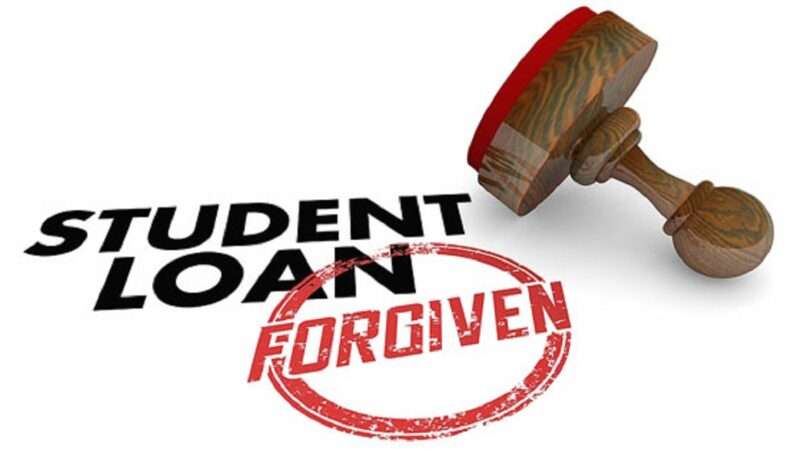

Today the Supreme Court heard oral arguments in Biden v. Nebraska and Department of Education v. Brown, two cases challenging the legality of the Biden Administration's plan to forgive over $400 billion in student debt, relying on the 2003 HEROES Act and the Covid-19 national emergency. The big issues in the two cases are whether the Administration has the power to grant loan forgiveness on such a vast scale, and whether the plaintiffs in the two cases (six state governments in one, two private parties that actually want the program to be broader in the other) have standing to challenge the program. I have previously gone over the substantive issues here and here, and standing here, here, and here.
While the outcome won't be known for weeks, perhaps not until June, today's oral arguments strongly suggest that all six conservative justices believe the loan forgiveness program is illegal, while the three liberals hold the opposite view. Things are less clear on the standing question. It is possible that Justice Amy Coney Barrett will join the three liberals in concluding that none of the plaintiffs have standing. But the other conservatives seem likely to rule that at least one (probably the state of Missouri) does have it.
Various conservative justices repeatedly signaled they have doubts that the HEROES Act authorizes the Biden plan, both because the power to "waive or modify" student loan conditions does not include large-scale cancellation of debt principal, and because many of the 40 million potential beneficiaries of the plan are not actually "in a worse position financially in relation to" their student loan obligations as a result of the Covid-19 pandemic, as the statute requires in order for the power to "waive or modify" to be authorized by the Covid national emergency declaration. In my view, the latter is the biggest legal weakness of the plan.
Chief Justice John Roberts cited evidence indicating that more than half of the potential beneficiaries do not believe they will have any trouble repaying their student loans. Of the remainder, many have issues unrelated to the impact of the pandemic. While the Solicitor General Elizabeth Prelogar rightly pointed out that the statute does not require "case-by-case" assessment of each individual, such massive overreach—covering tens of millions of people and hundreds of billions of dollars—seems obviously beyond what the statute authorizes.
The conservative justices—and at least one liberal—also signaled they believe the "major questions doctrine"—which requires Congress to "speak clearly when authorizing an [executive branch] agency to exercise powers of vast economic and political significance"—is applicable here. Justice Sotomayor (who was sympathetic to the government on almost every other point), rightly pointed out that "the amount at issue, the Chief [Justice] mentioned the quarter [of] a trillion dollars or the half a trillion dollars… seems to favor the argument that this is a major question."
None of the justices seemed sympathetic to Prelogar's argument that the major questions doctrine applies only to regulations, but not to federal benefits. Chief Justice Roberts noted that this ignores the fact that the purpose of doctrine is to protect separation of powers across the board. Justice Alito commented that "drawing a distinction between benefits programs and other programs seems to presume that when it comes to the administration of benefits programs, a trillion dollars here, a trillion dollars there, it doesn't really make that much difference to Congress."
The Court need not resort to the major questions doctrine to rule against the administration. It could just make that decision based on the text of the HEROES Act. But the doctrine raises the burden of proof the administration must meet. If the loan forgiveness policy qualifies as resolving a "major question" (and the immense size of the expenditure suggests that it does!) the government must not only show that the statute authorizes the policy, but that it does so "clearly." If the Court concludes the statute is ambiguous, the federal government will lose.
From early on, I have thought that the Biden Administration's best chance to save this policy is by winning on standing. Today's arguments confirm that.
The plaintiffs in the two cases advance various theories of standing. But by far the strongest is that of the state of Missouri, based on the fact that Missouri has a state agency called the Higher Education Loan Authority of the State of Missouri (MOHELA), which services many federally backed student loans and stands to lose money if some of those loans are forgiven.
Interestingly, Prelogar today conceded that MOHELA would have standing if it brought the case itself! But she argues that the state of Missouri lacks standing to bring a case on MOHELA's behalf, because the latter has an independent corporate status, and has the legal right to sue and be sued. In my view, this overlooks the reality that MOHELA is a state agency fulfilling public functions, that it is owned by the state, and thus any financial losses suffered by MOHELA are also suffered by Missouri. The fact that there is some administrative separation between MOHELA and other state agencies is irrelevant.
Nonetheless, the three liberal justices seemed to buy this argument. Conservative Amy Coney Barrett may also agree with it. She repeatedly pressed this issue today. At one point, she asked Nebraska Solicitor General Jim Campbell "[i]f MOHELA is an arm of the state, why didn't you just strong-arm MOHELA and say you've got to pursue this suit?" It's a reasonable question, and Campbell didn't deal with it well, saying that it's "a question of state politics."
A better response is that, while the state attorney general may not have the power to order MOHELA to file a lawsuit, that does not change the fact that MOHELA is owned by Missouri, and therefore that financial losses to MOHELA are also losses to the state. The state government can limit the power of one state agency (the AG's office) to control another (MOHELA). But that doesn't change the fact that the state ultimately owns and controls both. While the AG may not have the authority to issue orders to MOHELA, he does have the power to bring lawsuits on behalf of the state as a whole, to advance any of the state's interests—including those involving the assets of administratively independent state agencies.
It is not entirely clear which way Justice Barrett will go on this issue. While she posed probing standing questions to Campbell, she also at one point suggested that Missouri may get standing simply on the basis that it owns MOHELA.
The other five conservative justices said little about Missouri's standing. If they were inclined to rule against the plaintiffs on this basis, I would expect them to push the issue much more.
Some of the conservatives also seem open to other arguments for standing advanced by the plaintiff states, such as more indirect financial losses they might suffer. Justice Neil Gorsuch noted that a majority of the Court had granted state standing in Department of Commerce v. New York, the 2019 case challenging the legality of the Trump Administration's plans for the 2020 census, on the basis that "undercounting the state's population "would have potential effects to the State of New York in the term—in terms of the benefits it might later receive, that kind of knock-on effect was sufficient to constitute standing in that case." In addition, if a majority of justices thought that no plaintiff has standing, they would probably not have left in place the lower court injunctions blocking implementation of the loan forgiveness plan.
For all these reasons, I think at least five conservative justices will ultimately conclude that at least one plaintiff in Biden v. Nebraska (probably Missouri) does have standing. If so, they are likely to rule against the program on the merits. But I admit there is much more uncertainty on this issue than on the merits.
As I have pointed out before, the Biden Administration and its supporters have—in this case—been pushing ultra-narrow theories of standing traditionally associated with the political right. Those theories were wrong when advanced by conservatives, and are still wrong today.
While there may be a majority for granting standing in Biden v. Nebraska, the oral argument suggests there probably isn't one in Department of Education v. Brown, the somewhat screwy case brought by the conservative Job Creators Network on behalf of two plaintiffs who complain that the Biden program isn't generous enough, excluding one of them completely and forgiving less of the other's debt than might have otherwise been the case. They argue they have standing because administration adopted the plan without going through the "notice and comment" procedure arguably required by the Administrative Procedure Act, which would have given them an opportunity to argue that the program should have been more generous to them.
In the oral argument, the Brown plaintiffs' counsel argued that, if the court rules that the current loan forgiveness plan is illegal, the Biden Administration might go back to the drawing board and draft a new—hopefully more generous!—plan under the Higher Education Act of 1965. In the process, there would be a notice and comment procedure, where his clients would have their say. Ironically, the Higher Education Act has been cited as a possible alternative justification for the current Biden plan by some of the administration's supporters in the litigation (I criticized that theory here).
Both liberal and conservative justices criticized this theory of standing as too uncertain and convoluted. Among other things, it is far from clear that defeat in this case really will lead the administration to try again, using the Higher Education Act. They could just decide to accept defeat and go home.
I myself think that the Brown plaintiffs do deserve standing. But that's largely because I think current standing doctrine is far too restrictive, and should be largely abolished. At the very least, taxpayers should have a general right to challenge potentially illegal government expenditures. But it's highly unlikely the Supreme Court will endorse such radical (though correct!) notions anytime soon. Under current Supreme Court precedent, the Brown plaintiffs' face a very uphill battle, though they did prevail in the lower court.
But even if the Brown plaintiffs lose on standing, it will not make much difference to the fate of loan forgiveness program, so long as the plaintiffs in the other case win on that issue—and also prevail on the merits. That still strikes me as the most likely outcome.
The post Thoughts on Today's Supreme Court Student Loan Forgiveness Oral Arguments appeared first on Reason.com.







